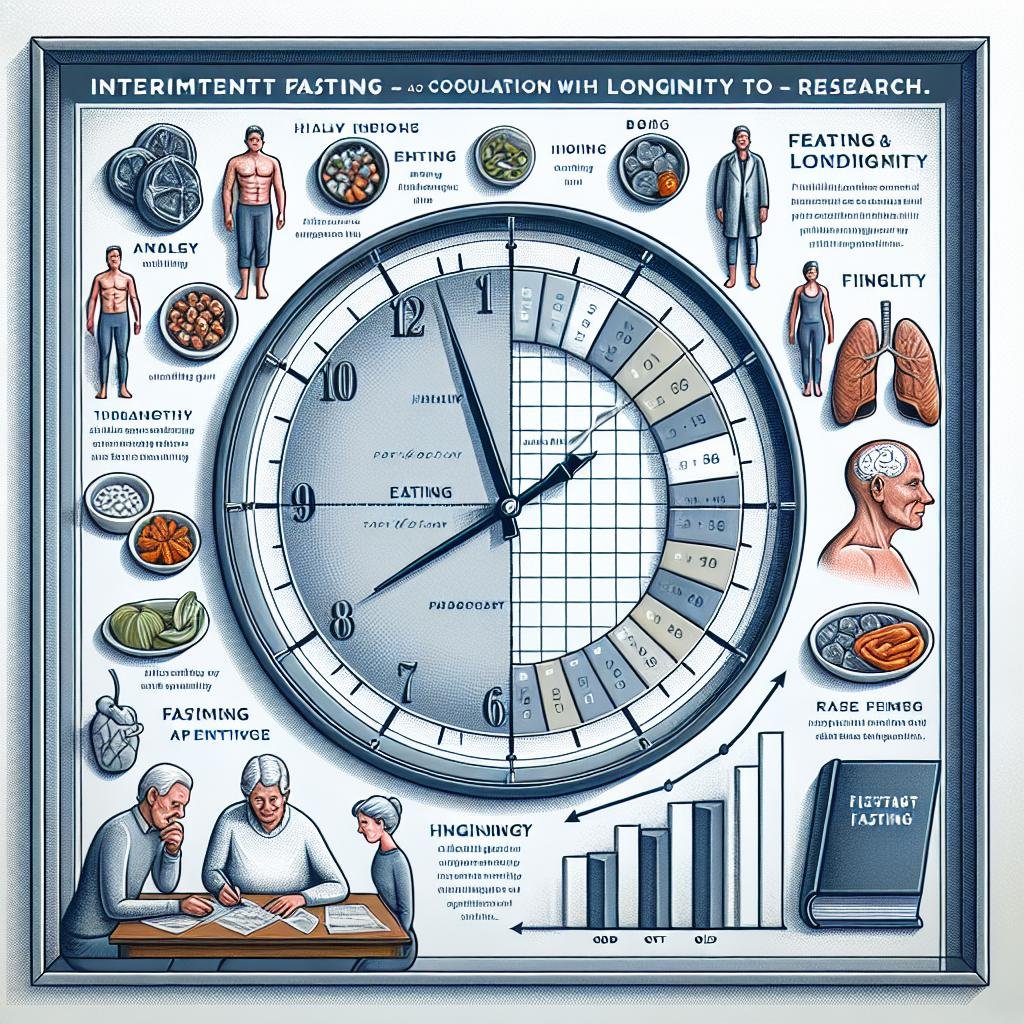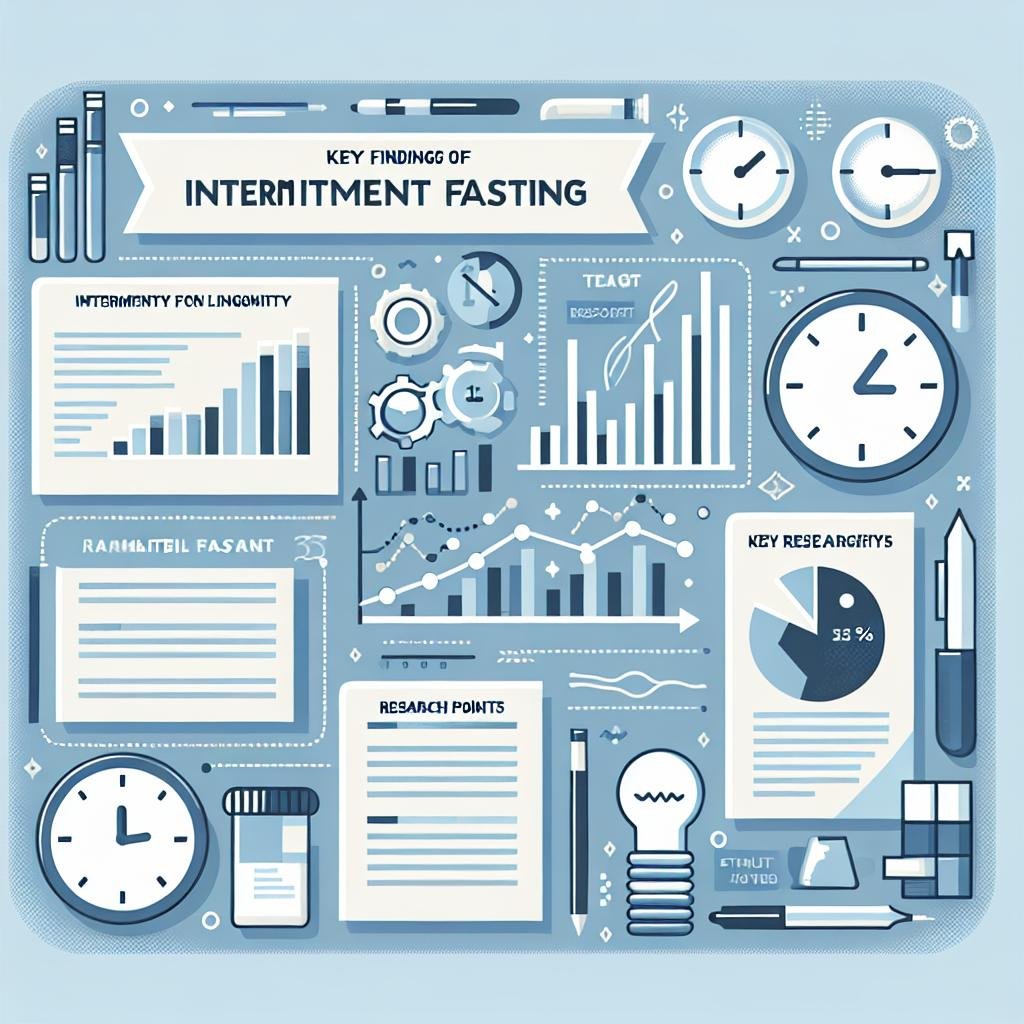In the pursuit of longevity, the modern world is keen to explore every avenue that promises a longer, healthier life. Among the myriad of dietary strategies that have emerged, intermittent fasting stands out not just as a trend, but as a compelling subject of scientific inquiry. As more individuals adopt this eating pattern, which alternates periods of fasting and eating, researchers are keen to unravel its potential effects on lifespan and overall health. But what does the research truly say about the connection between intermittent fasting and longevity? In this article, we will delve into the evidence, examining the intriguing findings that link this age-old practice with the science of aging, while navigating the promises and pitfalls awaiting those who seek to embrace it. Join us as we explore the intersection of diet, biology, and the timeless quest for a longer life.
Benefits of Intermittent Fasting for Aging and Cellular Health
Intermittent fasting (IF) has emerged as a vital tool in the quest for enhanced aging and cellular health. One of the most compelling mechanisms behind this is the process of autophagy. During fasting periods, the body initiates autophagy, breaking down and recycling damaged cellular components. This not only helps clear out dysfunctional proteins and organelles but also plays a crucial role in mitigating age-related diseases. By enhancing the body’s natural repair and maintenance processes, individuals might experience a remarkable improvement in cellular efficiency and longevity.
Moreover, intermittent fasting positively influences various metabolic pathways associated with aging. Research suggests that it can lead to improved insulin sensitivity and reduced inflammation, both critical factors in cellular health. Other potential benefits include the enhancement of mitochondrial function and the increase of important longevity genes, such as SIRT1 and FOXO3. Together, these factors create a synergistic effect that can contribute to a longer, healthier life, enabling individuals to enjoy their later years with greater vitality and resilience. Here are some key benefits:
- Enhanced Autophagy: Supports cellular rejuvenation.
- Improved Insulin Sensitivity: Helps in better blood sugar control.
- Reduced Inflammation: Lowers the risk of chronic diseases.
- Mitochondrial Health: Boosts energy production at the cellular level.
- Activation of Longevity Genes: Influences pathways linked to lifespan extension.

Exploring the Science: How Intermittent Fasting Influences Longevity
Recent research into intermittent fasting (IF) has shed light on its potential to enhance longevity through various biological mechanisms. One of the key processes involved is autophagy, the body’s way of clearing out damaged cells and regenerating new ones. This cellular cleanup not only reduces the risk of age-related diseases but also contributes to overall health vitality. Additionally, intermittent fasting has been shown to improve insulin sensitivity, which plays a critical role in metabolism and can significantly lower the risk of type 2 diabetes, a major factor influencing life span.
Moreover, IF may trigger beneficial hormonal changes that promote fat loss while preserving lean muscle mass. Notably, studies suggest that intermittent fasting can increase levels of human growth hormone (HGH), a hormone linked to fat reduction and muscle gain. The following table summarizes the potential benefits associated with intermittent fasting:
| Benefit | Description |
|---|---|
| Cellular Repair | Facilitates autophagy, enhancing cellular rejuvenation. |
| Improved Insulin Sensitivity | Reduces the risk of diabetes and supports metabolic health. |
| Hormonal Changes | Increases levels of HGH, aiding in fat loss and muscle retention. |
As more evidence emerges, the relationship between intermittent fasting and longevity continues to captivate the scientific community. The mechanisms through which IF exerts its effects are diverse and complex, including its impact on inflammation levels, oxidative stress, and even gene expression related to aging. These findings open the door to more extensive research, inviting further exploration into how dietary patterns can be harnessed not only for weight management but also for extending healthy life spans.

Practical Strategies for Implementing Intermittent Fasting Safely
Implementing intermittent fasting can yield significant benefits for longevity, but doing it safely is crucial. Start by establishing a fasting window that fits your lifestyle, whether it’s a 16/8 schedule or a 5:2 diet. Gradually ease into fasting by delaying your first meal or finishing your last meal earlier each day, which helps your body adjust without causing undue stress. Remember to stay hydrated during fasting periods; drinking water, herbal teas, or black coffee can help curb hunger and maintain energy levels. It’s also essential to listen to your body; if you feel dizzy, excessively fatigued, or unwell, reassess your approach.
As you adopt intermittent fasting, consider these key strategies to enhance your experience:
- Focus on nutrient-dense foods during eating windows to optimize health benefits.
- Incorporate physical activity to improve metabolic health, but schedule workouts accordingly to your energy levels.
- Consult a healthcare professional if you have pre-existing health conditions or if you are pregnant, breastfeeding, or recovering from surgery.
To further assist in creating a balanced approach, track your progress in a simple table format that captures key metrics such as energy levels, mood, and hunger cues throughout the fasting and eating periods:
| Day | Energy Level (1-10) | Mood (1-10) | Hunger Cues (1-10) |
|---|---|---|---|
| 1 | 7 | 6 | 8 |
| 2 | 8 | 7 | 5 |
| 3 | 6 | 5 | 9 |

Combining Intermittent Fasting with Healthy Lifestyle Choices for Optimal Results
Combining intermittent fasting with healthy lifestyle choices can amplify the benefits of both practices, promoting not only weight loss but also overall health and longevity. When you align your eating patterns with quality nutrition, the effects on your body can be significant. Consider incorporating whole foods into your meals during eating windows, focusing on key components such as:
- Fruits and Vegetables: Rich in vitamins, minerals, and antioxidants.
- Lean Proteins: Sources like chicken, fish, and legumes to support muscle growth and repair.
- Healthy Fats: Foods like avocados, nuts, and olive oil that help reduce inflammation.
Moreover, integrating regular physical activity can further optimize the effects of intermittent fasting. This doesn’t mean rigid workout routines; it’s about finding ways to stay active that suit your lifestyle. Simple changes can make a difference:
- Walking or Biking: Instead of driving for short distances.
- Strength Training: Assists in muscle maintenance and metabolic health.
- Mindfulness and Yoga: Enhances mental clarity and reduces stress, which can influence eating habits.
In essence, the synergy between intermittent fasting and a healthy lifestyle can create a robust framework for lasting wellness. It’s about more than just calorie intake or the hours you eat; it’s about crafting a nourishing lifestyle that enriches your body and mind.
Concluding Remarks
the journey through the world of intermittent fasting and its connection to longevity reveals a fascinating interplay of science and lifestyle choices. As we’ve explored, the research suggests that while intermittent fasting may offer a range of health benefits—including improved metabolic function and potential disease prevention—the effects can vary widely among individuals. It’s a reminder that our bodies are unique, requiring personalized approaches to nutrition and wellness.
As you consider incorporating intermittent fasting into your routine, it’s important to weigh the evidence, heed your body’s signals, and perhaps consult with a healthcare professional. After all, the quest for longevity is not just about extending life but enriching the quality of our years. Whether you choose to embrace fasting or not, understanding the choices we make empowers us on the path to a healthier, more fulfilled life. Here’s to exploring the possibilities, making informed decisions, and ultimately, celebrating the art of living well.

